Have you ever tried to find decodable passages for your older students?
Chances are your search resulted in texts that:
- Didn’t allow for application of the six syllable types
- Didn’t include many (if at all) mutisyllable words
- Didn’t allow for any engaging response/extension activities
- Didn’t provide differentiation for diverse student needs
- Were uninteresting and devoid of meaningful content
- Contained awkward language
- Had topics that seemed too babyish and/or included “cute” clipart
If you can relate to any of the above struggles, I’ve felt your frustration and disappointment!
That’s one of the reasons I started writing decodable passages that have real, relatable content. I’ve used these successfully with students in 2nd to 5th grade.
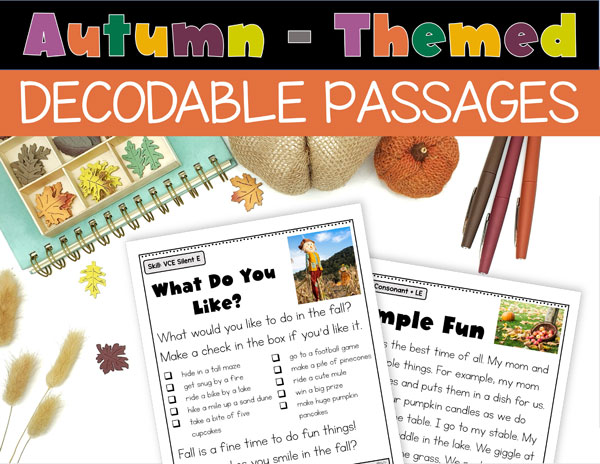

Older students can benefit from decodable passages, too!
Most big box curriculums were created with the assumption that all students master the phonetic code by second or third grade. Many students do, but too many do not. These are the students that need quality decodable texts the most.
They need more than just a wordlist, a handful of sentences, and a poorly written or unrelatable passage. They need meaningful practice and application of the phonics skills that they’re trying to master.
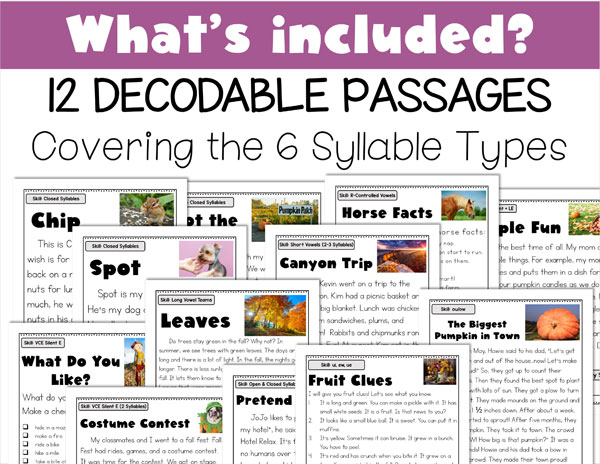

Decoding and gaining knowledge at the same time
Our nonfiction and realistic fiction decodable passages contain knowledge-building and relatable content.
Your students will read texts about giant pumpkins, Halloween costume contests, and fun facts about horses, for example. Did you know a horse’s heart can be as big as a basketball or that horses are incapable of vomiting?
Your students will not only get the chance to apply taught phonics skills with each passage, but they will likely learn something new, too!
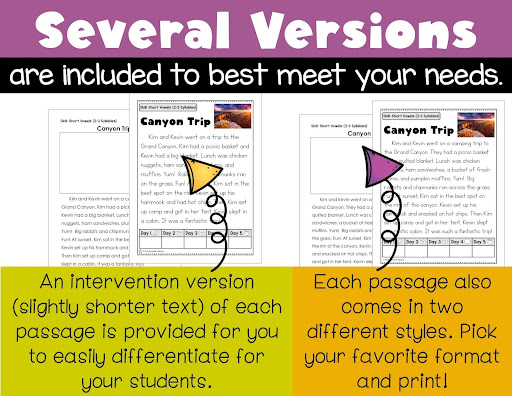

Daily activities reinforce student learning
In addition, I built in a suggested menu of daily activities, guiding students toward mastery of the targeted phonics skill and reading fluency.
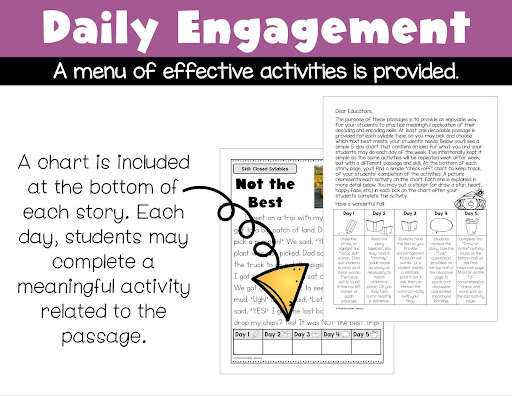

A sample of activities for the week includes:
Day 1: Students underline, circle, or highlight the targeted pattern. The focus skill is found in the top left corner of each passage.
Day 2: Students read the passage together. This can be a choral read with you, the teacher, or with a partner, depending on your students’ needs.
Day 3: Students read the text independently. If you are with a small group, encourage all students to read at the same time in a quiet voice (loud enough for you to hear and provide immediate, corrective feedback as needed, but not too loud as to disturb the group).
Day 4: Students use the “Talk” question provided on the top half of the response page to spark oral discussion and extend meaningful learning. My kids love to see images or videos related to the topic. I may show them a beautiful picture of the Grand Canyon, or we look up how many nuts a chipmunk can fit inside its cheeks, for example, or we search for an image of the largest pumpkin ever grown.
Day 5: Students can complete the “Draw or Write” activity on the bottom half of the response sheet AND/OR the True/False comprehension check and word sort on the last activity page. If you have a 4-day week or interruptions in your schedule (Who doesn’t?!), you could also send the response pages home for meaningful and motivating homework.
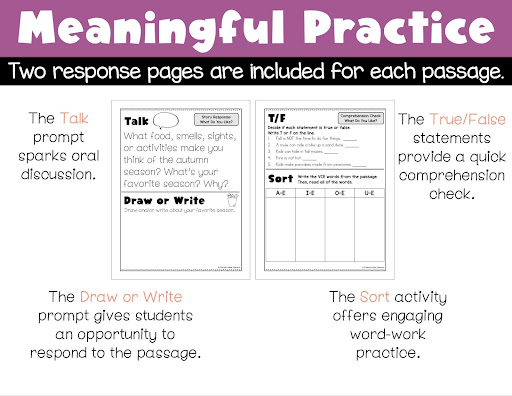

Thoughtfully designed with your older students in mind
Since multisyllable words make up the majority of words students encounter in the upper elementary grades, I made sure to include 2-3 syllable words throughout nine of the twelve passages.
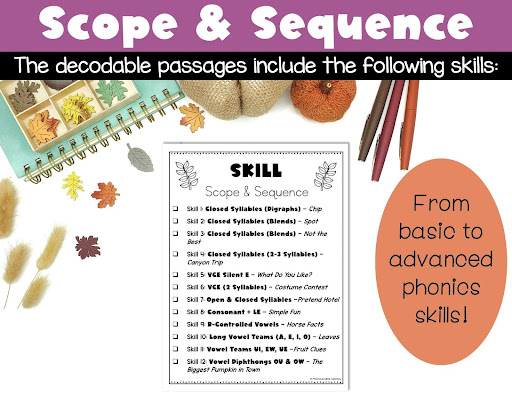

If your older students need meaningful practice in applying the phonics skills you’ve taught them, and you need a resource that’s low prep, effective, and engaging for your whole class, intervention groups, or tutoring students, feel free to click on the image below to learn more about my decodable passages.
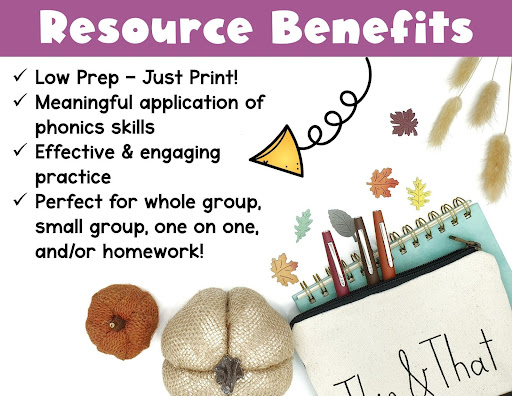

I wish you and your older students much enjoyment in their journey toward reading success!

